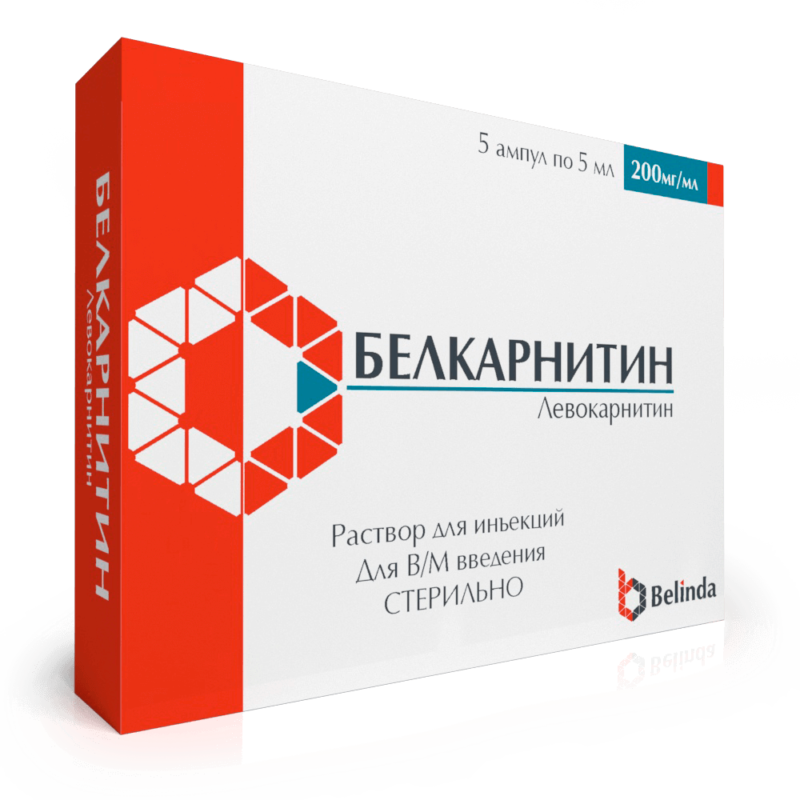
Belkarnitin
PRESCRIPTION
Levokarnitin is directly or indirectly involved in most energy processes; its presence is required for the oxidation of fatty acids, amino acids, carbohydrates and ketone bodies.
Manual
Each ml contains:
Levokarnitin 200 mg
Excipients: hydrochloric acid, water for injection.
- Primary and secondary carnitine deficiency in adults and children, including newborns and infants.
- Secondary carnitine deficiency in patients on hemodialysis. Secondary carnitine deficiency should be suspected in patients on hemodialysis in the following cases:
a) severe persistent muscle spasms and/or hypotensive episodes during dialysis;
b) energy deficiency, which has a significant negative impact on the quality of life;
c) muscle weakness and/or myopathy;
d) cardiopathy;
e) anemia that does not respond to treatment with erythropoietin or requires high doses of erythropoietin;
e) loss of muscle mass. - Acute cerebrovascular accidents – ischemic stroke, transient ischemic attack – in acute, subacute and recovery periods.
- Encephalopathy.
- Traumatic and toxic brain damage. As monotherapy or as part of complex therapy.
The drug is administered intravenously, slowly over 2–3 minutes.
Use for inborn errors of metabolism.
During therapy, it is advisable to monitor the levels of carnitine and acylcarnitine both in the blood plasma and in the urine. The required dose depends on the specifics of the inborn error of metabolism and the severity of the disease manifestations. In case of acute decompensation, the recommended dose can be up to 100 mg/kg body weight per day for 3–4 administrations. If necessary, higher doses can be used, although this may increase side effects, in particular diarrhea.